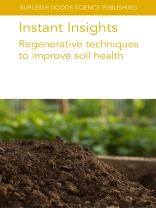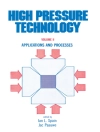- Addresses some of the common issues associated with the use of bio-based fertilisers
- Reviews the use and benefits of service crops in intensive cropping systems and low input systems
- Considers the use of compost as a means of improving soil health and biodiversity
Содержание
- Chapter 1 — DSafe and sustainable use of bio-based fertilizers in agricultural production systems: April Leytem, Robert Dungan, Mindy Spiehs and Dan Miller, United States Department of Agriculture, USA;
- 1 Introduction
- 2 Risk factors associated with utilizing bio-based fertilizers in agricultural production
- 3 Case study: intensive dairy production in the northwest United States
- 4 Conclusion
- 5 Future trends in research
- 6 References
- Chapter 2 — DAssessing the effects of compost on soil health: Cristina Lazcano, University of California-Davis, USA; Charlotte Decock, California Polytechnic State University, USA; Connie T. F. Wong, University of California-Davis, USA; and Kamille Garcia-Brucher, California Polytechnic State University, USA;
- Cover
- 1 Introduction
- 2 Why compost?
- 3 Effects of compost on soil nutrient cycling
- 4 Effects of compost on soil hydraulic properties
- 5 Effect of compost on crop productivity
- 6 Effects of compost on soil biodiversity
- 7 Effects of compost on environmental quality
- 8 The use of compost to improve soil health in annual crops: a case study with strawberries
- 9 The use of compost to improve soil health, sequester carbon and reduce greenhouse gas emissions in perennial crops: a case stu
- 10 Conclusion
- 11 Where to look for further information
- 12 References
- Chapter 3 — DService crops as a source of nitrogen in temperate Europe: Iris Vogeler, Aarhus University, Denmark and Christian-Albrechts University, Germany; Peter Sørensen and Ingrid K. Thomsen, Aarhus University, Denmark; and Friedhelm Taube, Christian-Albrechts University, Germany;
- 1 Introduction
- 2 Service crops in rotation with cash crops
- 3 Service crops intercropped with cash crops
- 4 Effects of service crops on yields
- 5 Residual effects of service crops
- 6 Nitrate leaching
- 7 Conclusion
- 8 Where to look for further information
- 9 References
- Chapter 4 — DThe role of crop rotations in optimizing nitrogen use efficiency in organic farming: Lucie Chmelíková and Kurt-Jürgen Hülsbergen, Technical University of Munich, Germany; and Sebastian Wolfrum, Technical University of Munich, Germany, and Bavarian State Research Center for Agriculture, Germany;
- 1 Introduction
- 2 Crop rotations and nitrogen flows in organic farming
- 3 Assessing nitrogen flows and nitrogen use efficiency in organic farming: case study
- 4 Assessing nitrogen flows and nitrogen use efficiency in organic farming: results
- 5 Improving the use of rotations to optimize nitrogen flows and nitrogen use efficiency
- 6 Conclusion
- 7 Future trends
- 8 Where to look for further information
- 9 References
Купите эту электронную книгу и получите еще одну БЕСПЛАТНО!
язык английский ● Формат EPUB ● страницы 152 ● ISBN 9781801469883 ● Размер файла 5.4 MB ● издатель Burleigh Dodds Science Publishing ● город Cambridge ● Страна GB ● опубликованный 2024 ● Загружаемые 24 месяцы ● валюта EUR ● Код товара 9419042 ● Защита от копирования Adobe DRM
Требуется устройство для чтения электронных книг с поддержкой DRM












